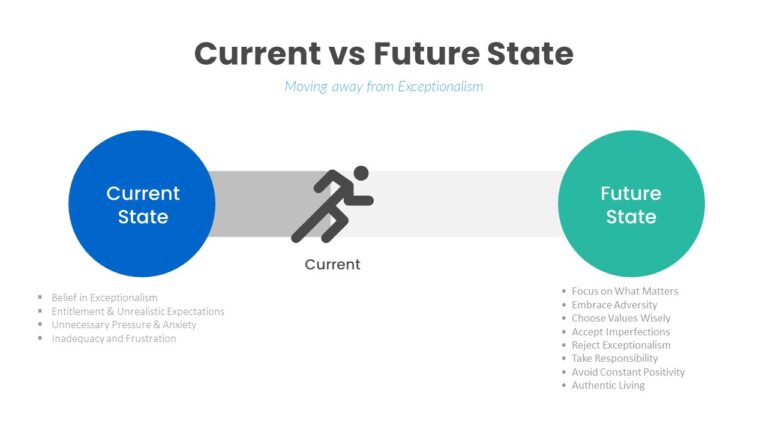Exceptionalism is the belief that one’s own abilities, experiences or achievements are inherently more significant or extraordinary than those of others. This mindset is not only unrealistic but also detrimental to personal well-being and happiness. Today we are reviewing a book from Mark Manson ‘The Subtle Art Of Not Giving a F’ck’

Sooner or later you will find any corporate employee or manager who believes in exceptionalism finding errors in everything that his team does. He will find loop holes in everything and could soon lose out on his team’s belief in him. The pervasive influence of social media and cultural narratives has led many people to believe they must be exceptional to be worthy of respect or love. The constant exposure to curated images of success, beauty, and happiness creates a distorted perception of reality, making ordinary lives seem inadequate. This belief fosters a sense of entitlement and an unrealistic expectation that life should always be remarkable and fulfilling
In the book titled “The Subtle Art of Not Giving a F*ck,” Mark Manson delves into the concept of rejecting exceptionalism, which is a critical component of his overall philosophy. By rejecting exceptionalism, Manson encourages readers to embrace their ordinariness. He emphasizes that most people are not extraordinary, and that’s perfectly fine. The majority of human experiences are average, and finding contentment in these everyday moments is key to a fulfilling life. Accepting that it’s okay to be ordinary helps to reduce unnecessary pressure and anxiety.
Manson also highlights the paradox of constant pursuit of greatness. The more people strive to be exceptional, the more they become aware of their shortcomings and failures, which can lead to feelings of inadequacy and frustration. Instead of obsessing over being exceptional, Manson suggests focusing on personal growth and improvement, which are more achievable and rewarding
Manson argues that “The quest for Perfection is not only unattainable but also counterproductive.”
It often leads to chronic dissatisfaction and a constant sense of inadequacy. Perfectionism can create a paralyzing fear of failure, preventing individuals from taking risks and pursuing their true passions.
This fear can stifle creativity, hinder personal growth, and lead to procrastination, as people avoid tasks they believe they cannot execute flawlessly
Accepting imperfections also involves acknowledging that life is inherently messy and unpredictable. This acceptance can lead to greater emotional flexibility and adaptability. When people let go of the need for everything to be perfect, they become more open to new experiences and opportunities. This openness can enhance their ability to cope with challenges and setbacks, ultimately leading to a more resilient and optimistic outlook on life.
Furthermore, embracing imperfection can improve relationships. When individuals accept their own flaws, they are more likely to be compassionate and understanding towards others. This can lead to deeper, more authentic connections, as people feel more comfortable being their true selves without the fear of judgment or rejection.
In essence, accepting imperfections is about recognizing and embracing the full spectrum of the human experience. It’s about understanding that flaws and failures do not diminish one’s worth but are integral to personal growth and authenticity. By adopting this mindset, individuals can lead richer, more meaningful lives, free from the unrealistic burden of perfection.
"Ultimately, rejecting exceptionalism is about accepting oneself and finding value in the ordinary aspects of life. It’s about recognizing that everyone has limitations and that these do not diminish one's worth or potential for happiness. By embracing this mindset, people can lead more authentic, content, and balanced lives"




